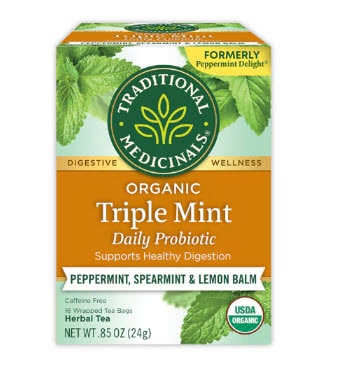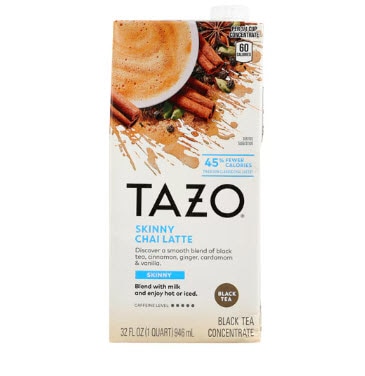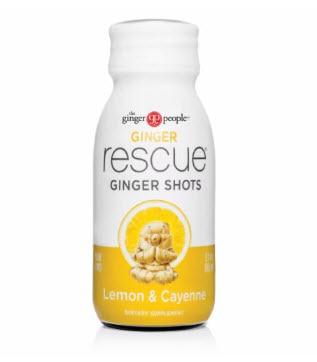You may have heard of Ayurveda, a comprehensive East Indian healing system that embraces the interconnectedness of mind, body and spirit. Originating over 5,000 years ago in the India, Ayurveda is one of the world’s oldest forms of holistic medicine, encompassing physical, psychological and spiritual health. The doshas are a primary component of Ayurvedic wellness.
What are the doshas?
The Ayurvedic healing system is based on the idea that our world consists of five elements:
- Aakash (space)
- Jala (water)
- Prithvi (earth)
- Teja (fire)
- Vayu (air)
These elements comprise the building blocks of what are called doshas. These might be described as energetic archetypes because just as psychological archetypes represent universal patterns of human experience, the doshas represent distinct, universal forces that govern physical and mental processes, influencing individual mind-body constitutions and behaviors. The three fundamental doshas are kapha, vata and pitta.
What are the properties of each dosha?
We as humans have a unique, dominant ratio of the doshas that shape our fundamental needs, with each dosha representing specific traits, tendencies and behaviors that influence our thoughts, feelings and actions. According to the principles of Ayurveda−which reflect ancient wisdom around human bio-individuality−it is rare for a person to have a single dominant dosha. Rather, most of us are thought to embody a combination of the doshas. Your unique, inherent combination of doshas, expressed in varying proportions, is known as your prakriti, or natural constitution. Here is how the doshas break down:
Vata
Also known as ether―this dosha consists primarily of the two elements air and space. It is characterized as cold, light, dry, rough, flowing and spacious. Individuals with vata tendencies are generally slim physically and possess energetic and creative natures.
Kapha
This is the earth and water dosha, which is typically described as steady, stable, heavy, slow, cold and soft. Kapha-dominant individuals tend to be heavy-set physically, emotionally grounded, dependable, reliable, with a slow, deliberate manner. They’re known for standing as a support system for others.
Pitta
Based on fire and water elements, this dosha is identified by hot, light, sharp, oily, liquid and mobile qualities. Pitta-leaning types are believed to be strong and athletic physically. They are also tenacious, with a motivated, goal-oriented, competitive nature.
How can you improve your wellness with the doshas?
Along with defining signature human characteristics and tendencies, each dosha includes a wellness component with recommended practices. A wealth of health guidance can be pulled from the following ‘dosha prescriptions’ since most of us are a mix of the three doshas.
Wellness action steps for vata
- Begin your day with a glass of warm water to gently awaken the digestive system and counteract dryness.
- Emphasize grounding, nourishing foods such as soups, stews, brown rice, quinoa and hearty root vegetables.
- Incorporate warming spices such as organic ginger, cinnamon and cumin to enhance digestion.
- Cook with organic ghee or cold-pressed avocado oil or sesame oil or drizzle prepared items with highly nutritive flaxseed oil, hempseed oil or pumpkin-seed oil to help combat vata dryness.
- Aim for consistent mealtimes to help stabilize irregular appetite and digestion associated with vata.
- Perform self-massage (abhyanga) with warm sesame or apricot kernel oil. This practice is deeply nourishing and grounding for vata.
- Choose gentle exercise, such as walking, tai chi and yoga. Avoid overly strenuous or fast-paced workouts that can deplete vata energy.
- Enjoy hot tea throughout the day to stay hydrated and improve digestion. Ayurvedic options include: Buddha Teas Organic Holy Basil Tea, Organic India Tulsi Turmeric Ginger Herbal Tea and Organic India Tulsi Sleep Tea.
Wellness action steps for Kapha
- Consume your largest meal at lunchtime, when the digestive fire is strongest and avoid evening snacking.
- Embrace vigorous, stimulating, consistent physical activity like running, tennis, cycling, etc. to help counteract Kapha’s tendency towards heaviness and lethargy.
- Emphasize heat-generating spices daily, such as ginger, turmeric, black pepper, cinnamon and cayenne. In addition to using them in your meals, you might like The Ginger People Rescue Ginger Shots Lemon & Cayenne, Mickelberry Gardens Ginger Digestive Support Spray, Herb Pharm Mature Seed Fennel System Restoration or Turmeric Gold juice.
- Reduce or eliminate dairy products, which can be highly congesting for this dosha especially. You certainly won’t miss it in this Golden Latte with Navitas Organics Latte Mix Plant-Based Superfood Turmeric or this Organic Traditions Chocolate Latte with Ashwagandha and Probiotics. Tazo Spiced Chai Skinny Latte Black Tea Concentrate for Hot or Iced Chai Latte also makes a fabulous dairy-free latte with Barista-Blend Almond milk or protein-rich hemp milk.
Wellness action steps for Pitta
- Gravitate towards “cooling” grains like basmati rice, barley and oats, and swap out congesting dairy products like milk, yogurt, sour cream and cheese for delicious plant-based alternatives.
- Emphasize cooling spices like coriander, fennel, mint and cardamom in cooking. You can also add spice concentrates to juice, water or broth, such as this Fennel Concentrate.
- Fitness efforts should be moderate and non-competitive to avoid overheating and irritation. Consider swimming, hiking in a cool environment, leisurely cycling or gentle yoga. Avoid pushing yourself beyond 50% of your capacity.
- Practice Sheetali (cooling breath) and Nadi Shodhana (alternate nostril breathing) to calm the mind and soothe the body.
- Stay hydrated with teas featuring coriander, fennel and mint to aid digestion and reduce internal heat, such as Traditional Medicinals Organic Probiotic Tea Triple Mint, Numi Tea Moroccan Mint Tea, and Traditional Medicinals Organic Fennel Tea.
- Chill out in a bath spiked with a few drops of peppermint essential oil.
- Enjoy cooling Aloe Vera Concentrate in Cherry-Berry or Orange-Papaya flavors to diluted juice, tea or water.
The Ayurvedic healing system is arguably one of the most comprehensive guides to illness prevention in the history of the world. The doshas offer a multi-faceted model of wellness behaviors to measurably improve your longevity. These can be selected from the “dosha prescriptions” both individually and collectively as most of us are a mix of the three doshas. Which daily habits from the doshas would benefit you the most personally?




